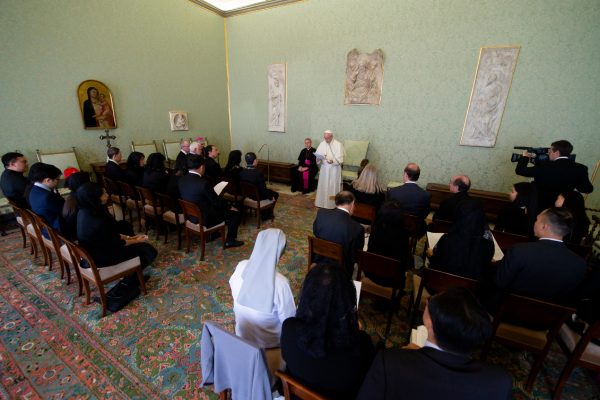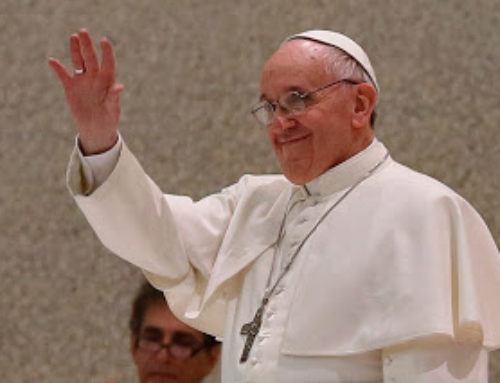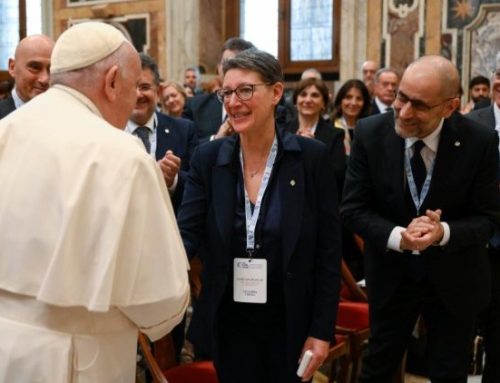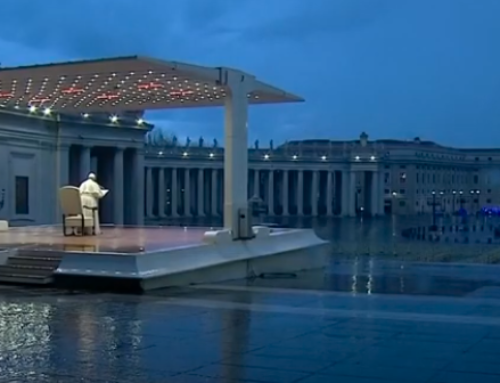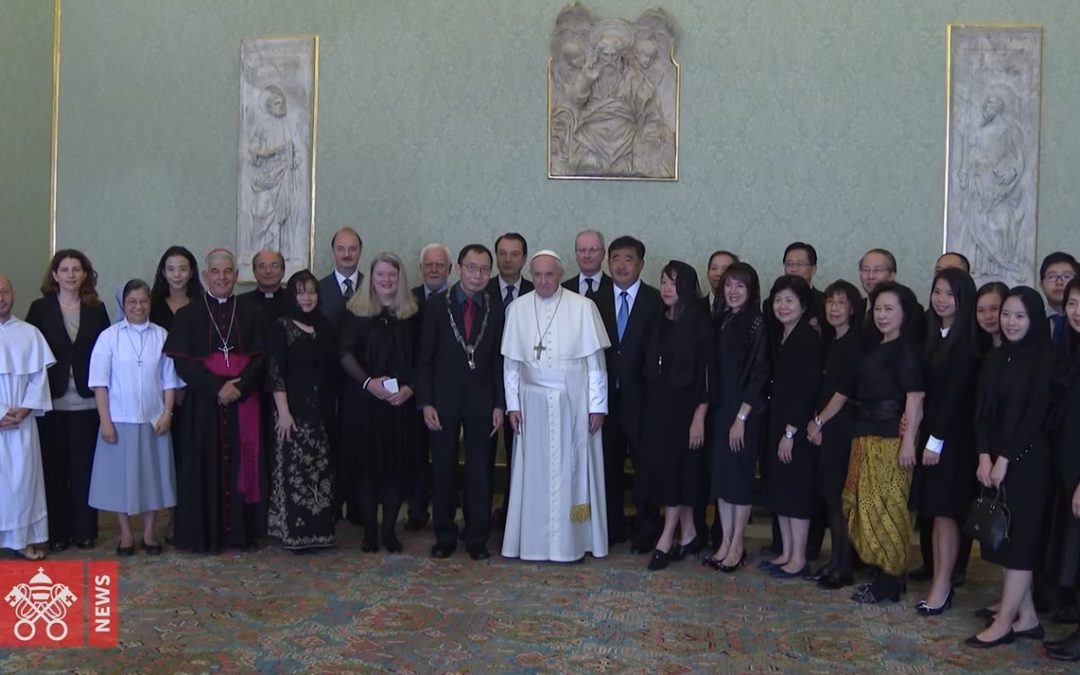
Pope Reminds Catholic Doctors of Important Christian Witness
‘Implement Evangelical Principles in Medical Practice’
MAY 28, 2018 18:53 ZENIT STAFFHEALTH AND HEALTHCARE
“Your qualification as ‘Catholic doctors’ commits you to continuing spiritual, moral and bioethical formation in order to implement evangelical principles in medical practice, from the doctor-patient relationship to missionary activity, to improve the health conditions of populations in the suburbs of the world.” Pope Francis told Catholic doctors on May 28, 2018. “Your work is a particular form of human solidarity and Christian witness; indeed, your work is enriched with the spirit of faith. And it is important that your associations commit themselves to sensitizing medical students and young doctors to these principles, involving them in the associations’ activities.”
The Holy Father’s remarks came in the Hall of Popes of the Apostolic Palace, where he received in audience a delegation of the World Federation of the Catholic Medical Associations (FIAMC), on the occasion of the upcoming congress to be held in Zagreb, Croatia from 30 May to 2 June, on the theme “Holiness in life and the medical profession, from Humanae vitae to Laudato si’”.
“It is your responsibility to work in your respective countries and at international level…on sensitive ethical issues, such as the termination of pregnancy, end of life and genetic medicine,” the Holy Father continued. “Ensure your attention also in defense of freedom of conscience, of doctors and of all healthcare workers. It is not acceptable for your role to be reduced to that of a simple executor of the will of the patient or the needs of the health system in which you work.”
Address of the Holy Father
Dear brothers and sisters,
I am pleased to welcome you and to greet you all, starting with the President, Dr. John Lee, whom I thank for his words.
Your qualification as “Catholic doctors” commits you to continuing spiritual, moral and bioethical formation in order to implement evangelical principles in medical practice, from the doctor-patient relationship to missionary activity, to improve the health conditions of populations in the suburbs of the world. Your work is a particular form of human solidarity and Christian witness; indeed, your work is enriched with the spirit of faith. And it is important that your associations commit themselves to sensitizing medical students and young doctors to these principles, involving them in the associations’ activities.
Catholic identity does not compromise your collaboration with those who, from a different religious perspective or without a specific creed, recognize the dignity and excellence of the human person as the criterion of their activity. The Church is for life, and her concern is that nothing may be against life in the reality of a concrete existence, however weak or defenseless it may be, even if not developed or advanced. To be Catholic doctors, therefore, is to feel that you are health workers who, from faith and communion with the Church, receive the impulse to make your own Christian and professional formation more mature, your dedication untiring, and inexhaustible your need to penetrate and know the laws of nature to serve life better (cf. Paul VI, Encyclical Letter Humanae Vitae, 24).
The fidelity and coherence with which the Associations of your Federation, over the years, have kept faith in their Catholic features, implementing the teaching of the Church and the directives of its Magisterium in the medical-moral field, are known. This criterion of recognition and action has fostered your collaboration in the Church’s mission to promote and defend human life from its conception to its natural end, the quality of existence, respect for the weakest, the humanization of medicine and its full socialization.
This fidelity has required and requires hardships and difficulties that, in particular circumstances, can demand much courage. Continue with serenity and determination on this path, accompanying the magisterial interventions in the areas of medicine with a corresponding awareness of their moral implications. The field of medicine and health, in fact, has not been spared from the advance of the technocratic cultural paradigm, from the worship of human power without limits and from practical relativism, in which everything becomes irrelevant if it is not necessary for one’s own interests (cf. Encyclical Letter Laudato si’, 122).
In this situation, you are called upon to affirm the centrality of the patient as a person and his dignity with his inalienable rights, primarily the right to life. The tendency to debase the sick man as a machine to be repaired, without respect for moral principles, and to exploit the weakest by discarding what does not correspond to the ideology of efficiency and profit. must be resisted. The defense of the personal dimension of the patient is essential for the humanization of medicine, in the sense also of “human ecology”. It is your responsibility to work in your respective countries and at international level, intervening in specialized environments but also in discussions concerning legislation on sensitive ethical issues, such as the termination of pregnancy, end of life and genetic medicine. Ensure your attention also in defense of freedom of conscience, of doctors and of all healthcare workers. It is not acceptable for your role to be reduced to that of a simple executor of the will of the patient or the needs of the health system in which you work.
In your next congress, which will be held in Zagreb in a few days, you will reflect on the theme “Holiness of life and the medical profession, from Humanae vitae to Laudato si’”. This too is a sign of your concrete participation in the life and mission of the Church. This participation – as underlined by the Second Vatican Council – is “so necessary within the Church communities that without it the apostolate of the pastors is often unable to achieve its full effectiveness” (Decreto Apostolicam Actuositatem, 10). Be ever more aware that today it is necessary and urgent for the activity of the Catholic physician to be presented with unmistakable clarity on the level of personal and associative testimony.
In this regard, it is desirable that the activities of the Associations of Catholic Doctors be interdisciplinary and also involve other ecclesial realities. In particular, know how to harmonize your efforts with those of priests, men and women religious, and all those who work in health pastoral care, placing them together with the people who suffer: they are in great need of your and their contribution. Be ministers, not only of care but also of fraternal charity, transmitting to those you approach, along with the contribution of your knowledge, your wealth of humanity and evangelical compassion.
Dear brothers and sisters, many look to you and to your work. Your words, your gestures, your counsel and your decisions have an echo that goes far beyond the strictly professional field and becomes, if consistent, witness of lived faith. The profession thus rises to the dignity of a true apostolate. I encourage you to continue your associative journey with joy and generosity, in collaboration with all the people and institutions who share love for life and endeavor to serve it in its dignity and sacredness. May the Virgin Mary, Salus infirmorum, support your intentions, which I accompany with my blessing. And please, pray also for me. Thank you.
© Libreria Editrice Vatican
ENGLISH:

